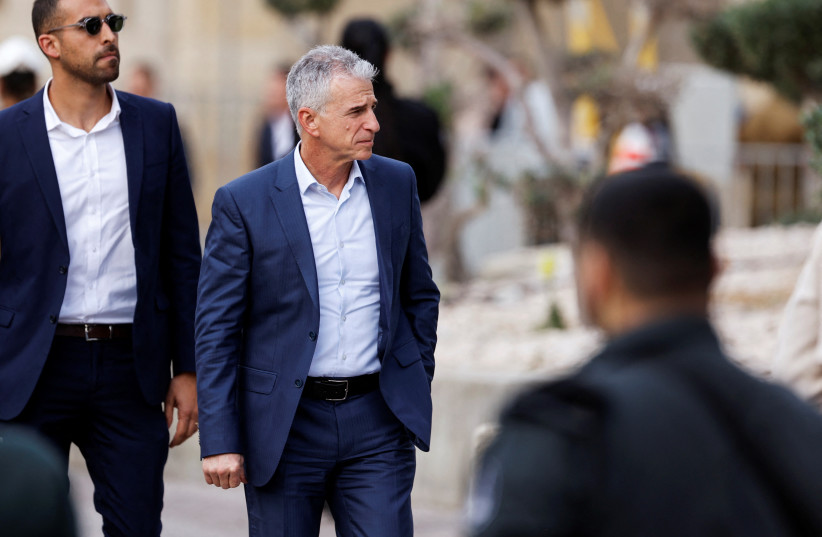In the shadow of the escalating tensions and tragic human toll in the Gaza Strip, the deadlock in the Cairo ceasefire talks casts a spotlight on a critical issue: Hamas’s refusal to provide a list of surviving hostages. This refusal not only hampers progress toward a ceasefire but also highlights a broader, more troubling tactic – using human lives as leverage in geopolitical negotiations.
The negotiations for a hostage and ceasefire deal were near collapse on Sunday after Hamas refused to provide information on the status of the remaining hostages in the Strip.
On Sunday, representatives from Hamas, Qatar, and the US arrived in Cairo, Egypt, for a renewed round of hostage negotiations. The Israeli delegation was thus absent, with a KAN News report quoting an official as saying that the delegation “will not leave until a response from Hamas is received.”
The Hamas delegation was led by the terror organization’s deputy chief in Gaza, Khalil al-Hayya, a senior Hamas official told Reuters. Al-Hayya was the Hamas official leading the Islamist group’s delegation for the Cairo hostage negotiations in February. He has previously acknowledged that Hamas has military capabilities in Rafah.
As per Israeli reports, Qatar informed Israel that Hamas’s response leaves little room for progress in talks.

Israel’s decision to abstain from the Cairo discussions, as detailed by Reuters, is a direct response to Hamas’s steadfast rejection of a fundamental demand: transparency regarding the condition and status of the hostages. An unidentified Israeli official, quoted by the Ynet news outlet, succinctly encapsulates the impasse: “Hamas refuses to provide clear answers, and therefore there is no reason to dispatch the Israeli delegation.” This situation not only stalls the negotiation process but starkly exhibits Hamas’s disregard for the hostages’ and their families’ basic human rights and dignity.
Hamas is using manipulative tactics
Through the lens of this report, Hamas’s actions underscore a deliberate manipulation of the negotiation process. By treating human lives as bargaining chips to further political objectives, Hamas not only engages in morally reprehensible behavior but also significantly hinders any potential peaceful resolution, thereby intensifying the suffering of both the hostages and Gaza’s civilian population.
Sunday’s news reports also illuminated the disproportionate human cost of the ongoing conflict, with more than 30,000 Palestinians reportedly killed, according to Hamas health authorities, and a looming humanitarian crisis that threatens to push the enclave into famine. This flagrant neglect to prioritize the well-being of civilians and hostages in negotiations starkly contravenes the principles of international humanitarian law.
A US official told reporters on Saturday: “The path to a ceasefire right now literally at this hour is straightforward. And there’s a deal on the table. There’s a framework deal,” according to Reuters.
Israel had agreed to the framework and it was now up to Hamas to respond, the US official said.
An agreement would bring the first extended truce of the war, which has raged for five months so far with just a week-long pause in November. Dozens of hostages held by the militants would be freed in return for hundreds of Palestinian detainees.
Israel’s consent to a proposed framework deal, as mentioned by a US official, signals the Israeli government’s willingness to work towards a ceasefire and address the dire humanitarian situation in Gaza. Nonetheless, the success of any agreement hinges on both parties’ readiness to engage sincerely in negotiations and prioritize the immediate safety and release of hostages over political stipulations.
The unfolding tragedy in Gaza, exacerbated by the stalemate in ceasefire talks, necessitates an urgent reevaluation of Hamas’s negotiation strategies. Furthermore, it calls for a more proactive role from the international community in ensuring that negotiations adhere to international legal standards and respect human rights. Only through a steadfast commitment to these fundamental principles can hope be restored for a resolution that not only ends the suffering but also paves the way for a durable peace in the region.
